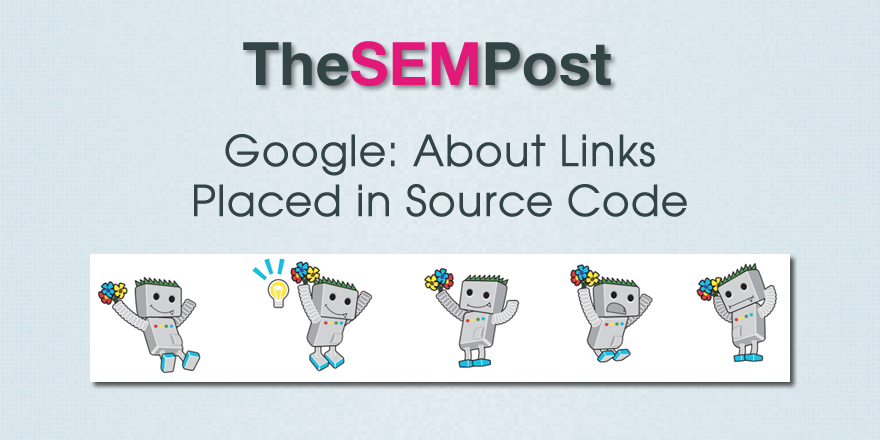
The question came up in the last Google Webmaster Office Hours with John Mueller.
Are links mentioned inside the source code that can’t be seen by the page also counted as links? Some WordPress plugins, for example, have “This website is powered by…” or “optimzied by whatever,” and it is only visible in the source code.
Here is Mueller’s response.
So that sounds like it would be a hidden link. That wouldn’t really be okay with regards to our webmaster guidelines. So if it’s in HTML, and its an A kind of link, with the actual URL, then that’s something that would be a problem for us.
If it is an HTML comment, for example, and it’s just a piece of text saying “This plugin is powered by so-and-so,” and it’s an HTML comment, then that’s not a link and that’s perfectly fine.
So the problem is really if it’s a link that’s passing PageRank to another site that’s not actually visible on the page by default, then that would be a hidden link and that would be something that our web spam algorithms will try to figure out and take action on.
So it really comes down to the formatting used by the plugin and it if is a link capable of passing PageRank or if it is simply a non-linked URL in text.
More and more plugins and themes have gone away with linking for attribution, such as with footer links, as site owners became more savvy to the “This theme is sponsored by viagra and poker casinos” style of links being problematic with Google. So we do see more popping up in the source code – or even with obfuscated code that is not as easily identifiable as a link.
If you have a plugin or theme that links in the source code, you might want to look at how the links are done to prevent any link issues, such as a manual action, in the future. And for site owners, Google has issued manual actions for outgoing links, so there is always the possibility Google might crack down on these links in the future, especially if you already link out to other sites that are followed when the links should be nofollowed.
Jennifer Slegg
Latest posts by Jennifer Slegg (see all)
- 2022 Update for Google Quality Rater Guidelines – Big YMYL Updates - August 1, 2022
- Google Quality Rater Guidelines: The Low Quality 2021 Update - October 19, 2021
- Rethinking Affiliate Sites With Google’s Product Review Update - April 23, 2021
- New Google Quality Rater Guidelines, Update Adds Emphasis on Needs Met - October 16, 2020
- Google Updates Experiment Statistics for Quality Raters - October 6, 2020
